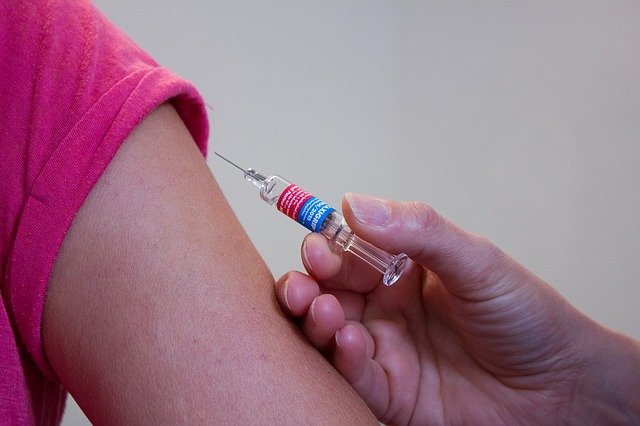Contents
As flu season begins, many people are planning to get a flu vaccine. But does it matter if you have been vaccinated against the coronavirus?
The Centers for Disease Control and Prevention (CDC) and the World Health Organization (WHO) recommend annual influenza vaccination for many population groups, especially the elderly. But this year, there is another factor: most Americans have been vaccinated against the coronavirus in recent months. But does that change anything regarding flu vaccination?

What is the difference between a cold, the flu, and Coronavirus infection?
- Usually, a cold starts slowly. Headache, a feeling of weakness, and a runny nose spread over several days. The symptoms of a common cold include a sore throat, cough, and fever. The symptoms get worse day by day and disappear after about seven days.
- The flu usually comes on suddenly and violently with a high fever, a strong feeling of illness, headache, and general malaise, which force the patient to lie down. The flu’s symptoms often include a dry, irritating cough and a sore throat.
- Like the common cold, coronavirus infection begins quite insidiously. Fever and dry cough are the main symptoms. A sore throat and runny nose are less likely to occur with a cold, but you may temporarily lose your sense of smell and taste.
Patients react very differently to flu and COVID-19. Both illnesses can develop into severe pneumonia and leave patients generally weak for a long time after they have recovered. Other patients, on the other hand, are lucky and hardly notice any symptoms. But even those who feel healthy can infect other people.
Click to know more about COVID-19 Vaccine Myths
During the pandemic, health insurance has become even more necessary. Therefore, state health institutions and insurers have sought to expand free health insurance coverage and affordable health insurance to offer low-income people coverage of essential health services, such as the flu vaccine.
TrueCoverage offers an easy-to-use search engine to find a policy that works for you, and more than 70 percent of those who apply receive their coverage free, covered by a government tax subsidy.
Does the flu vaccine affect the protection of the COVID-19 vaccine?
Everyone carries protective antibodies against various pathogens due to vaccinations or previous infections. These antibodies work side-by-side, so simply adding an additional vaccine such as the flu vaccine does not diminish the protective efficacy of the other vaccines.
Although some symptoms seem similar: COVID-19 and flu viruses are different. A flu vaccine does not protect against COVID-19 and vice versa. Not all people generate and accumulate antibodies to the same extent, and there are few qualitative differences between vaccines. Also, it is essential to consider that the number of antibodies in the blood decreases over time.
Flu vaccination helps the body fight flu viruses quickly and effectively. The immune system can use the saved resources much better against a coronavirus infection, if necessary, if it is double vaccinated. Those with a chronic illness often also have a weaker immune system and catch the flu more quickly. If there is also a COVID-19 infection, the immune system could soon reach its limits.
Therefore, vaccination against influenza is vital for people who belong to a COVID-19 high-risk group.
What about the side effects of the COVID-19 and flu vaccines?
There has been a lot of discussion in recent months about the undesirable side effects of COVID-19 vaccines. Hardly any other vaccination campaign has been so widely observed and criticized.
The results of clinical studies have confirmed that the COVID-19 vaccines approved in the US are safe. If the incidence and hospitalizations of severe cases are analyzed, it can be concluded that the vaccines do work.
Concerning the influenza vaccine, severe vaccination reactions are rare. The seasonal flu vaccine is generally well tolerated. Side effects of flu vaccination, such as redness, swelling, or mild pain, usually go away after a few days.
As the flu is so widespread and changes from year to year, vaccines must continually adapt to cover the variants that are important at that time, which is why this vaccine changes annually.
Is receiving the flu and COVID-19 vaccines at the same time safe?
Multiple vaccines against different pathogens are widespread among children and adults. New research has examined whether COVID-19 vaccines are also an option to be given simultaneously as other vaccines. Simultaneous vaccinations, such as COVID-19 and influenza, do not give rise to safety problems.
Since both flu and COVID-19 vaccines are “killed” or inactivated vaccines, it is not necessary to maintain a vaccination interval for medical reasons. An inactivated vaccine means that the pathogens or the components of the pathogens contained in the vaccine can no longer trigger an infection. Still, the immune response can be stimulated without problems. Therefore, the vaccines could be administered on the same day. For patients, this parallel vaccination means a great relief because another vaccination appointment can be avoided.
Dose ranges: what should you consider?
The time intervals between various vaccine doses, such as the two doses required by Pfizer or Moderna, are still necessary. The reason for this is not fewer side effects, but rather that the body needs time to build adequate vaccination protection. If the range is too small or too wide, the defense is reduced.
How bad will the flu season be this year?
It is difficult to predict how many flu cases there will be in the next few months. Last season, there were hardly any severe flu cases, thanks to the protective measures derived from the pandemic.
So, this flu season is likely to be stronger than the last, of course, because restrictions have been relaxing, and distancing is not expected in the same way as last year.
The flu vaccine during the pandemic is vital. When the situation in healthcare services is tense, each additional patient is a challenge, especially if they require specialized care, such as intensive care. Additionally, the flu can quickly become life-threatening, especially in the elderly with comorbidities.
Read more on: Vaccine hesitancy-What is it and Why?

